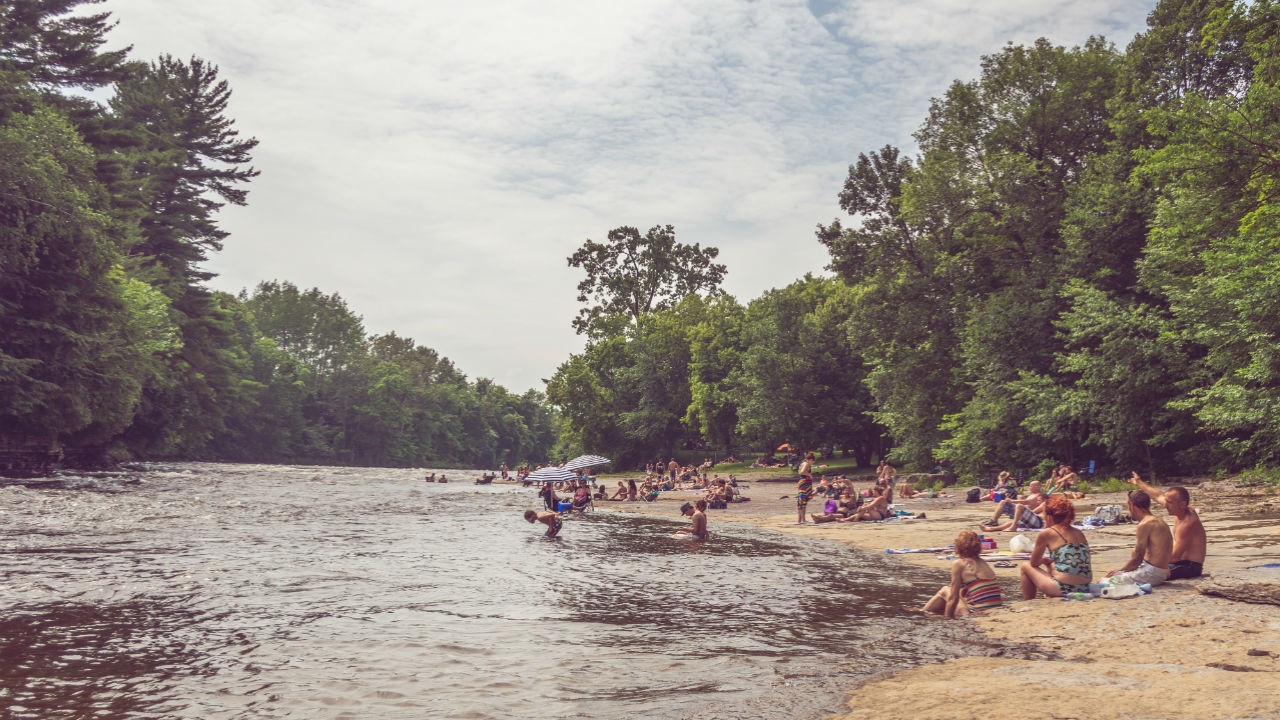Getting some sun time is probably good for you since most of us are deficient in vitamin D, but it can also be dangerous because exposure to UV radiation can damage the DNA of your skin cells and cause skin cancer. This is an ongoing dilemma that most of us are faced with, but things could change if scientists at Melbourne University in Australia are successful.
They are studying a DNA repair enzyme produced by kangaroos. This enzyme helps protect the famous Down Under marsupial from skin cancer, and it could eventually lead to some sort of 'DNA repair cream" that you could simply apply to your skin after a day in the sun.
Co-investigators Linda Feketeova and Uta Wille are working in collaboration with scientists at the University of Innsbruck in Austria to investigate if sun-damaged human DNA can be repaired using the kangaroo model.
“We are now examining whether this would be feasible by looking at the chemistry behind the {kangaroo} DNA system,” said Dr. Feketeova.
Kangaroos are not immune from skin cancer but their special repair enzyme, which is also present in some bacteria and fish, gives their skin an additional protection that humans naturally lack.
In the laboratory, the researchers are using a spectrometer to replicate a kangaroo’s skin exposure to UV light. This procedure enables them to analyze the DNA repair process in action. The work has produced all sorts of chemical by-products that have never been seen before.
Of course, such an anti-cancer cream would be the best possible application of this discovery. We're not there yet, the researchers say, and it might turn out to be impossible to do with our current level of technology. Even if that's not practical, a better understanding of the mechanisms used by kangaroos could help develop other types of medical therapies.
As summer approaches in the southern hemisphere, Dr. Feketeova says more than 400,000 Australians are diagnosed with skin cancer annually. In the U.S. skin cancer is the most commonly diagnosed cancer, with an estimated one million people diagnosed each year. Melanoma, the most serious type of skin cancer, will account for about 68,720 cases of skin cancer in 2009, and most (about 8,650) of the 11,590 deaths due to skin cancer annually, according to the American Cancer Society and the Skin Cancer Foundation.
More than two-thirds of non-melanoma cases are caused by over exposure to the sun. Skin cells are damaged by sunburn and the cells become genetically mutated. Since humans don’t possess the capability of repairing DNA, this type of skin cancer is currently particularly difficult to treat. These studies provide hope that kangaroos may provide a skin cancer cure. Until then, Dr. Feketeova says most people should regularly use a good sunscreen.
Lynette Summerill, is an award-winning journalist who lives in Scottsdale, Arizona. In addition to writing about cancer-related issues, she writes a blog, Nonsmoking Nation, which follows global tobacco news and events.






Add a Comment1 Comments
Hi Lynette- What exciting news this is! There's so much we can learn from animals, and a "DNA repair cream"for sun damage would be helpful to so many humans, specially those where I live, Arizona. Please keep us posted as this develops! Pat
December 9, 2009 - 5:34pmThis Comment